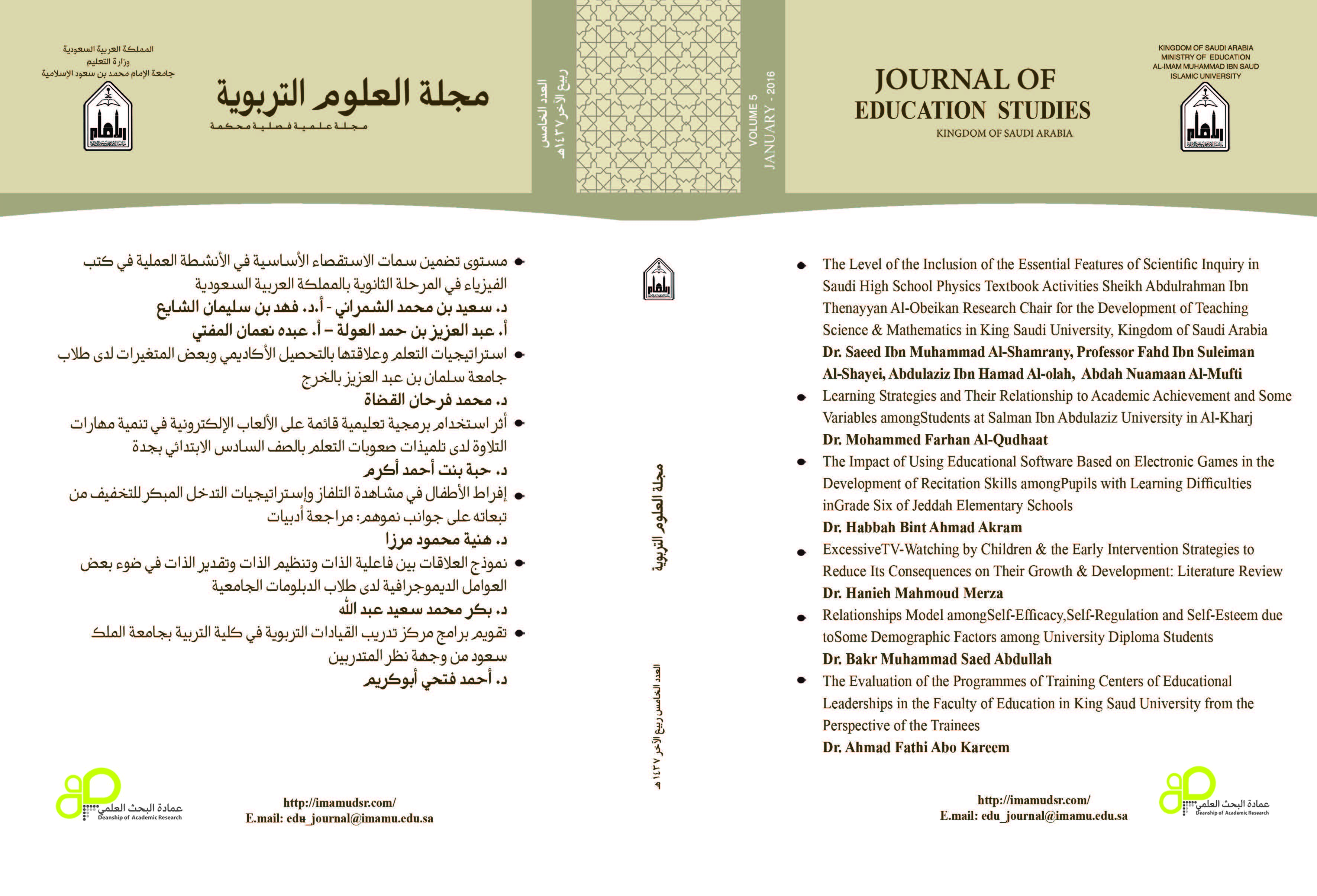Relationships Model among Self-Efficacy,Self-Regulation and Self-Esteem due to Some Demographic Factors among University Diploma Students
Abstract
This study consisted of two sides: one is to build a model of the relationships among self-efficacy, self-regulation and self-esteem, and to verify the model validation, second: is to test the model fit-goodness in the light of some demographic variables: academic specialization, work field, Marital status, age, experience. (300) applicants of Imam Muhammad bin Saud Islamic University graduate diplomas (Guidance and counseling diploma, General Diploma in Education and Special Education Diploma (1432/1433 AH) completed self-efficacy scale, self-regulation questionnaire (SRQ), and Rosenberg self-esteem scale (RSES). data were analyzed by Goodness of Fit Indexes (Cui-square, GFI, AGFI, PMR, RMSEA, ECVI, NFI, PNFI, PGFI, RFI, CFI), and "Pairwise parameter comparisons" were calculated using SPSS & AMOS 21. Results have demonstrated the significance of fit-goodness of the proposed model for total sample observed data, and variation of fit-goodness significance of study sub-groups models which classified in the light of the demographic factors of the study. The study recommended the application of academic and student counseling to students university diplomas system, and consider the level of student self-processes in the admission to undergraduate diplomas tests, and students direct training on self-processes awareness and management skills.




